Startups developing AI in epilepsy and sleep, a swarm robotic solution for ship cleaning, a novel rehabilitation system, and smart, solid-state, power amplifiers each win CHF 10,000
26.09.2022
AI in Epilepsy and Sleep, Nautica Robotics, smartVNS, and SolidWatts win Venture Kick's first stage of financial and entrepreneurial support. Their projects bring faster and additional information to clinicians in their diagnostics, offer a swarm robotic solution to prevent biofouling from forming on a ship, develop a rehabilitation system that uses real-time motion tracking and analysis to control a non-invasive form of brain stimulation, and aim at disrupting the market with high-power, industrial-grade radio frequency (RF) and microwave (MW) heating based on Solid-State Amplifier (SSA) technology for chemical, food processing, construction materials, recycling, and many other industries.
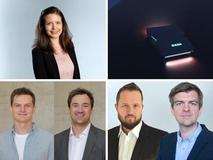 |
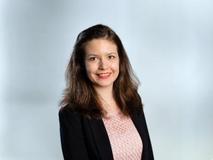 AI in Epilepsy And Sleep: CEO Skorucak Jelena
|
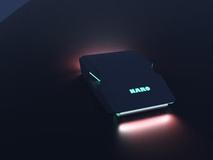 Nautica Robotics Product
|
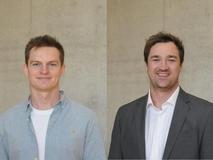 smartVNS: CEO Paulius Viskaitis and CTO Dane Donegan
|
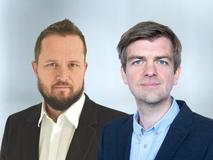 SolidWatts co-founders: CEO Dr. Markus Aicheler and CTO Dr. Jan Kovermann
|
AI in Epilepsy and Sleep: faster and more precise analysis for EEG data
Epilepsy and sleep diagnostics are performed in the clinics where electroencephalography (EEG) is recorded. Hours of these recordings are manually inspected by clinicians in order to find events of interest. A whole-night sleep EEG is usually manually scored in 20-s segments, and scoring 8 -10 hours of data (one night) can be tiring and take a lot of time for clinicians.
The startup developed machine learning algorithms that can do that automatically. This can be implemented in hospitals and help doctors in their everyday diagnostics. AI in Epilepsy and Sleep project is led by CEO Jelena Skorucak, a postdoctoral researcher at the University of Zurich, with a bachelor's degree in computer science, a master's in biomedical engineering, and a Ph.D. in the analysis of sleep data. She's on the technical side of the project, her postdoctoral supervisor is a sleep expert, and there are two clinicians who are EEG experts. They offer an intelligent system that can analyze and detect problems in the EEG data. Their algorithms are well suited for a semi-automatic application in a clinical setting, i.e. automatic analysis, which would be checked by experts. This would lead to a much faster analysis, allowing clinicians to have more time for other responsibilities. Their system is not only faster but also brings additional information to clinicians in their diagnostics. It has been assessed that the total cost of epilepsy worldwide is USD 119 billion. As the estimated share for pediatrics is 20%, this results in 10’000’000 patients with a total cost of USD 23.8 billion.
They would use funds from Venture Kick to test the solution for everyday clinical use and establish first contacts with potential customers, such as companies selling EEG equipment.
Nautica Robotics: Swarm robotics to prevent the formation of biofouling on the hull and in the niches
Biofouling on ships is one of the biggest challenges in the shipping industry. It increases fuel consumption due to the increased resistance of the ship in the water, limits the maximum speed of the ship due to the increased resistance in the water, and can violate legal regulations when entering territorial waters. Last but not least, it leads to huge CO2 emissions.
Nautica Robotics offers a swarm robotic solution to prevent biofouling from forming on a ship. This is realized by an autonomous swarm of robots on board the ship, which is used to proactively clean the hull and the niches when the ship is stationary. This saves both times and lowers fuel costs, while significantly reducing CO2 emissions. Nautica Robotics offers a swarm robotic solution that is autonomously deployed whenever the ship is at rest. The robots have magnetic wheels which allow them to drive across the ship hull and with their rotating brush prevent the biofouling from forming. Since it's a swarm robotic solution there is no single point of failure and the number of robots can be adapted to the size of the vessel. They estimate the total addressable market to be USD 30+ billion as there are upwards of 150'000 merchant ships viable for their solution.
The Venture Kick funds will be used to build a prototype and completion is expected in the next few months. nauticarobotics.ch
smartVNS: novel rehabilitation system
Around 8 million people require rehabilitation after a stroke every year, but therapy is expensive (outpatient rehabilitation CHF 40K-100K) and often unsatisfactory, while rehab effectiveness is tracked either by simplistic metrics or requires expensive devices. Vagus nerve stimulation (VNS) makes rehab more effective, but existing methods require surgery and constant therapist supervision and are not scalable. Therefore, there is an unmet need for effective, non-invasive, affordable, and scalable tools for rehab and its progress tracking.
SmartVNS was co-founded by CEO Paulius Viskaitis and CTO Dane Donegan both employed by ETH Zurich as postdocs. Their innovation is a rehabilitation system that uses real-time motion tracking and analysis to control a non-invasive form of brain stimulation. This is achieved by algorithmically combining two proven technologies: wearable devices for position tracking and auricular vagus nerve stimulation. The synergy of these methods results in rehabilitation therapy with many benefits compared to existing solutions: a safe, clinically effective way to induce neural recovery mechanisms, continued patient progress tracking for doctors and therapists that enables remote therapy personalization based on patient progress; lower treatment burden and higher efficacy due to closed-loop stimulation and personalization; lower therapy cost due to automation; better treatment adherence via therapy gamification. The rehabilitation medical device market is USD 1.4B (CAGR of 16.75%, 4.9B USD in 2028).
VentureKick funding will allow the purchase of hardware parts necessary for the construction of the stimulator prototype and its coupling to the motion sensors. This will be achieved with the support of the rehabilitation engineering lab at ETH Zurich. They will also start collecting patient movement data thanks to their clinical partners. It will be used to perfect therapy-specific movement detection algorithms.
Solidwatts: accelerate the transition of the industry to fully electric for a greener tomorrow
Climate change and political tensions require industry to rapidly shift the powering of heat-based processes away from fossil fuel to - ideally green - electricity. Just like in your home kitchen, electric heat can be delivered in different ways. Of these, the microwave oven is the most efficient, consistently heating the entire volume of a good with substantially lower energy loss. Even though this method exists on a light industrial scale, the power levels needed for heavy industrial applications have yet to be realized.
SolidWatts aims at disrupting the market with high-power, industrial-grade radio frequency (RF) and microwave (MW) heating based on Solid-State Amplifier (SSA) technology for chemical, food processing, construction materials, recycling, and many other industries. SolidWatts is co-founded by CEO Dr. Markus Aicheler and CTO Dr. Jan Kovermann. Dr. Sergio Calatroni is an advisor from the CERN and an expert in the emerging nuclear energy sector. They will help integrators, process developers, and process industries to transition industrial heating processes from fossil fuels to RF and MW. Their smart, solid-state, power amplifiers will be designed for maximum scalability and cost-efficient production with equipment cost reductions one order of magnitude below current levels. 2019 EU gas consumption for industrial heating was 3170 Petajoules (PJ), equating to >100 electric Gigawatt (GW) scale power stations running 24/7. They estimate that 15% of the industry can benefit from RF & MW heating, equating to a market opportunity of 10-15 GW. At an estimated cost of 3CHF/W, the client investment in their technology will be in the order of tens of billion CHF in the EU alone, distributed over the next two decades. The global market is ten times larger. Using carbon-neutral electricity to feed RF and MW power amplifiers will save >100 Megatonnes of CO2 per year.
The Venture Kick funds will be used for the company registration, the purchase of basic laboratory electrical equipment, the building and demonstration of a first working prototype of the SSA module (1kW) with 24/7 hours of testing; to start the research project with CERN, and for the signature on letters of Interest from numerous potential customers. solidwatts.ch
Epilepsy and sleep diagnostics are performed in the clinics where electroencephalography (EEG) is recorded. Hours of these recordings are manually inspected by clinicians in order to find events of interest. A whole-night sleep EEG is usually manually scored in 20-s segments, and scoring 8 -10 hours of data (one night) can be tiring and take a lot of time for clinicians.
The startup developed machine learning algorithms that can do that automatically. This can be implemented in hospitals and help doctors in their everyday diagnostics. AI in Epilepsy and Sleep project is led by CEO Jelena Skorucak, a postdoctoral researcher at the University of Zurich, with a bachelor's degree in computer science, a master's in biomedical engineering, and a Ph.D. in the analysis of sleep data. She's on the technical side of the project, her postdoctoral supervisor is a sleep expert, and there are two clinicians who are EEG experts. They offer an intelligent system that can analyze and detect problems in the EEG data. Their algorithms are well suited for a semi-automatic application in a clinical setting, i.e. automatic analysis, which would be checked by experts. This would lead to a much faster analysis, allowing clinicians to have more time for other responsibilities. Their system is not only faster but also brings additional information to clinicians in their diagnostics. It has been assessed that the total cost of epilepsy worldwide is USD 119 billion. As the estimated share for pediatrics is 20%, this results in 10’000’000 patients with a total cost of USD 23.8 billion.
They would use funds from Venture Kick to test the solution for everyday clinical use and establish first contacts with potential customers, such as companies selling EEG equipment.
Nautica Robotics: Swarm robotics to prevent the formation of biofouling on the hull and in the niches
Biofouling on ships is one of the biggest challenges in the shipping industry. It increases fuel consumption due to the increased resistance of the ship in the water, limits the maximum speed of the ship due to the increased resistance in the water, and can violate legal regulations when entering territorial waters. Last but not least, it leads to huge CO2 emissions.
Nautica Robotics offers a swarm robotic solution to prevent biofouling from forming on a ship. This is realized by an autonomous swarm of robots on board the ship, which is used to proactively clean the hull and the niches when the ship is stationary. This saves both times and lowers fuel costs, while significantly reducing CO2 emissions. Nautica Robotics offers a swarm robotic solution that is autonomously deployed whenever the ship is at rest. The robots have magnetic wheels which allow them to drive across the ship hull and with their rotating brush prevent the biofouling from forming. Since it's a swarm robotic solution there is no single point of failure and the number of robots can be adapted to the size of the vessel. They estimate the total addressable market to be USD 30+ billion as there are upwards of 150'000 merchant ships viable for their solution.
The Venture Kick funds will be used to build a prototype and completion is expected in the next few months. nauticarobotics.ch
smartVNS: novel rehabilitation system
Around 8 million people require rehabilitation after a stroke every year, but therapy is expensive (outpatient rehabilitation CHF 40K-100K) and often unsatisfactory, while rehab effectiveness is tracked either by simplistic metrics or requires expensive devices. Vagus nerve stimulation (VNS) makes rehab more effective, but existing methods require surgery and constant therapist supervision and are not scalable. Therefore, there is an unmet need for effective, non-invasive, affordable, and scalable tools for rehab and its progress tracking.
SmartVNS was co-founded by CEO Paulius Viskaitis and CTO Dane Donegan both employed by ETH Zurich as postdocs. Their innovation is a rehabilitation system that uses real-time motion tracking and analysis to control a non-invasive form of brain stimulation. This is achieved by algorithmically combining two proven technologies: wearable devices for position tracking and auricular vagus nerve stimulation. The synergy of these methods results in rehabilitation therapy with many benefits compared to existing solutions: a safe, clinically effective way to induce neural recovery mechanisms, continued patient progress tracking for doctors and therapists that enables remote therapy personalization based on patient progress; lower treatment burden and higher efficacy due to closed-loop stimulation and personalization; lower therapy cost due to automation; better treatment adherence via therapy gamification. The rehabilitation medical device market is USD 1.4B (CAGR of 16.75%, 4.9B USD in 2028).
VentureKick funding will allow the purchase of hardware parts necessary for the construction of the stimulator prototype and its coupling to the motion sensors. This will be achieved with the support of the rehabilitation engineering lab at ETH Zurich. They will also start collecting patient movement data thanks to their clinical partners. It will be used to perfect therapy-specific movement detection algorithms.
Solidwatts: accelerate the transition of the industry to fully electric for a greener tomorrow
Climate change and political tensions require industry to rapidly shift the powering of heat-based processes away from fossil fuel to - ideally green - electricity. Just like in your home kitchen, electric heat can be delivered in different ways. Of these, the microwave oven is the most efficient, consistently heating the entire volume of a good with substantially lower energy loss. Even though this method exists on a light industrial scale, the power levels needed for heavy industrial applications have yet to be realized.
SolidWatts aims at disrupting the market with high-power, industrial-grade radio frequency (RF) and microwave (MW) heating based on Solid-State Amplifier (SSA) technology for chemical, food processing, construction materials, recycling, and many other industries. SolidWatts is co-founded by CEO Dr. Markus Aicheler and CTO Dr. Jan Kovermann. Dr. Sergio Calatroni is an advisor from the CERN and an expert in the emerging nuclear energy sector. They will help integrators, process developers, and process industries to transition industrial heating processes from fossil fuels to RF and MW. Their smart, solid-state, power amplifiers will be designed for maximum scalability and cost-efficient production with equipment cost reductions one order of magnitude below current levels. 2019 EU gas consumption for industrial heating was 3170 Petajoules (PJ), equating to >100 electric Gigawatt (GW) scale power stations running 24/7. They estimate that 15% of the industry can benefit from RF & MW heating, equating to a market opportunity of 10-15 GW. At an estimated cost of 3CHF/W, the client investment in their technology will be in the order of tens of billion CHF in the EU alone, distributed over the next two decades. The global market is ten times larger. Using carbon-neutral electricity to feed RF and MW power amplifiers will save >100 Megatonnes of CO2 per year.
The Venture Kick funds will be used for the company registration, the purchase of basic laboratory electrical equipment, the building and demonstration of a first working prototype of the SSA module (1kW) with 24/7 hours of testing; to start the research project with CERN, and for the signature on letters of Interest from numerous potential customers. solidwatts.ch


